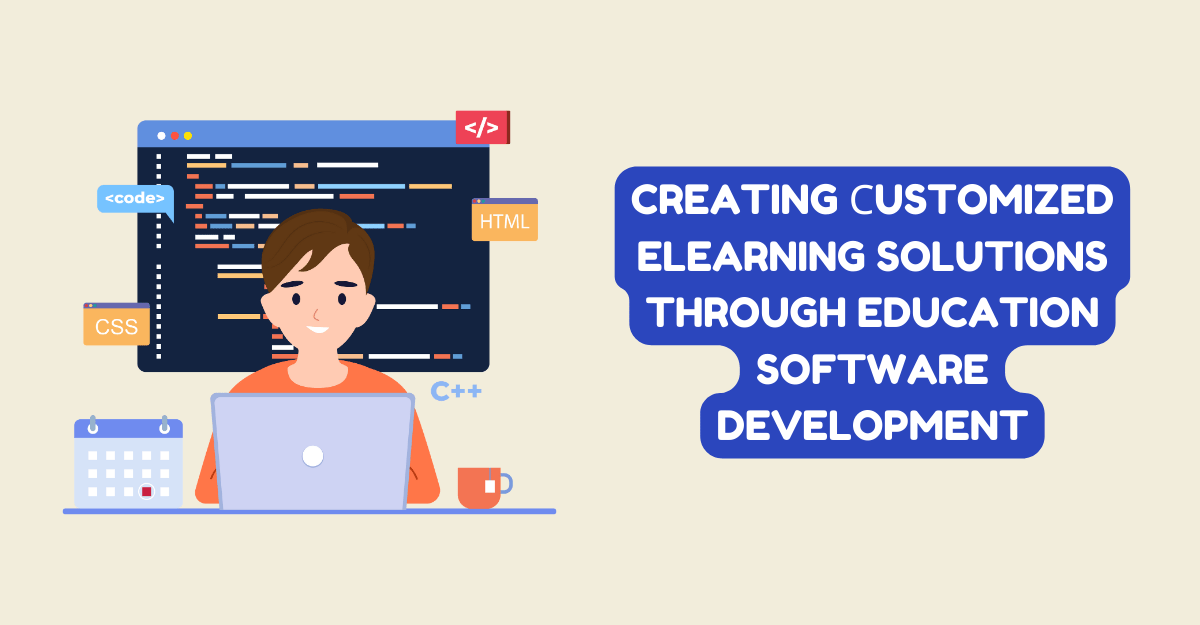
Creating Сustomized eLearning Solutions through Education Software Development
In today’s rapidly evolving educational landscape, the demand for tailored learning experiences has never been greater. With the advent of technology, the realm of education has transcended traditional boundaries, embracing innovative solutions to cater to the diverse needs of learners. One such solution is the development of customized eLearning software https://piogroup.net/customized-elearning-solutions-development, which offers a flexible and personalized approach to education delivery. So, what is eLearning software development? Let’s find out!
Understanding the Need for Customized eLearning Solutions
The traditional one-size-fits-all approach to education is increasingly becoming obsolete in the face of individualized learning preferences and varying learning paces among students. Customized eLearning solutions https://piogroup.net/education-software-development-services address this challenge by providing adaptive learning experiences tailored to the specific requirements of each learner. Whether it’s accommodating different learning styles, addressing language barriers, or catering to varying levels of proficiency, personalized eLearning solutions offer a more effective and engaging educational experience.
Benefits of Personalized Learning Experiences
The benefits of personalized learning experiences are manifold. Firstly, they foster greater student engagement by catering to individual interests and learning preferences. Such tailored methodologies not only bolster motivation but also foster heightened engagement and profound comprehension of the material at hand. Furthermore, bespoke eLearning solutions afford learners the freedom to advance according to their individual rhythms, thus optimizing both learning outcomes and retention rates. Additionally, through the provision of pinpointed feedback and evaluations, personalized eLearning initiatives nurture ongoing refinement and the attainment of skill mastery.
Exploring Education Software Development
Education software development encompasses the design, creation, and implementation of digital tools and platforms tailored to the specific needs of educational institutions and learners. These solutions range from learning management systems (LMS) and content authoring tools to virtual classrooms and interactive simulations. By leveraging cutting-edge technologies such as artificial intelligence, virtual reality, and gamification, education software developers can create immersive and engaging learning experiences with eLearning solutions for modern learners.
Key Components of Customized eLearning Solutions
- User-Centric Design: Custom eLearning development begins with a deep understanding of the target audience and their learning requirements. User-centric design principles are applied to create intuitive interfaces and seamless navigation, ensuring a positive learning experience.
- Adaptive Learning Algorithms: Personalized eLearning solutions employ adaptive learning algorithms to analyze learner data and dynamically adjust the content and pace of instruction. This enables individualized learning pathways tailored to each student’s strengths, weaknesses, and preferences.
- Multimedia Content Creation: Examples of custom eLearning content development tools facilitate the creation of multimedia-rich learning materials, including interactive videos, simulations, and animations. These engaging resources enhance comprehension and retention, making learning more enjoyable and effective.
- Mobile Compatibility: As mobile devices continue to saturate the market, tailored eLearning solutions are engineered to offer accessibility without constraints of time or location. Employing responsive design methodologies, these solutions guarantee seamless viewing experiences across diverse screen dimensions and devices, granting learners the flexibility to interact with the material through their favored platform.
- Analytics and Reporting: Comprehensive analytics and reporting functionalities enable educators to track learner progress, identify areas for improvement, and measure the effectiveness of the eLearning program. Data-driven insights facilitate informed decision-making and continuous optimization of the learning experience.
Emerging Trends and Innovations
As the technological landscape undergoes perpetual evolution, the scope for personalized eLearning solutions expands in tandem. Among the emerging trends, the integration of artificial intelligence (AI) and machine learning algorithms into eLearning platforms stands out prominently. These technologies enable adaptive learning pathways, intelligent tutoring systems, and personalized recommendations based on learner behavior and performance data. Virtual and augmented reality (VR/AR) are also revolutionizing eLearning by providing immersive, interactive simulations and virtual environments that enhance engagement and comprehension. Additionally, microlearning—a concept centered around delivering bite-sized, focused learning modules—is gaining traction as a way to accommodate busy schedules and promote continuous learning.
Future Outlook
Gazing into the horizon, the trajectory of personalized eLearning solutions appears bright, propelled by the march of technological progress, shifts in educational philosophies, and the ever-changing expectations of learners. With a growing acknowledgment among educational institutions and organizations of the merits of personalized learning journeys, the call for bespoke eLearning solutions is anticipated to surge. Furthermore, with the growing emphasis on lifelong learning and upskilling in the face of technological disruption, customized eLearning solutions will play a pivotal role in empowering individuals to acquire new skills and stay competitive in the workforce. By embracing education software development services and leveraging innovative tools and technologies, companies can unlock the full potential of customized eLearning solutions to transform education and empower learners worldwide.
Best Practices
- Collaborative Approach: Successful eLearning development projects involve close collaboration between instructional designers, subject matter experts, and technology specialists. By leveraging the collective expertise of interdisciplinary teams, organizations can ensure the development of high-quality, tailored eLearning solutions.
- Iterative Design Process: Adopting an iterative design process allows for continuous feedback and refinement throughout the development lifecycle. Regular testing and evaluation enable developers to address issues promptly, incorporate user feedback, and optimize the learning experience iteratively.
- Accessibility and Inclusivity: Customized eLearning solutions should be designed with accessibility and inclusivity in mind, ensuring equal access to educational resources for all learners. This includes providing alternative formats for learners with disabilities and designing interfaces that are user-friendly and intuitive for diverse audiences.
- Scalability and Flexibility: Scalability and flexibility are essential considerations in eLearning software development, particularly for institutions with varying numbers of learners and evolving educational needs. Solutions should be designed to accommodate growth, allowing for seamless integration of new features and content as requirements change over time.
Conclusion
In conclusion, customized eLearning solutions offer a compelling alternative to traditional educational approaches, providing tailored learning experiences that meet the diverse needs of modern learners. By leveraging education software development services and custom eLearning content development tools, organizations can create immersive, engaging, and effective learning experiences that empower learners to succeed in today’s dynamic world.






